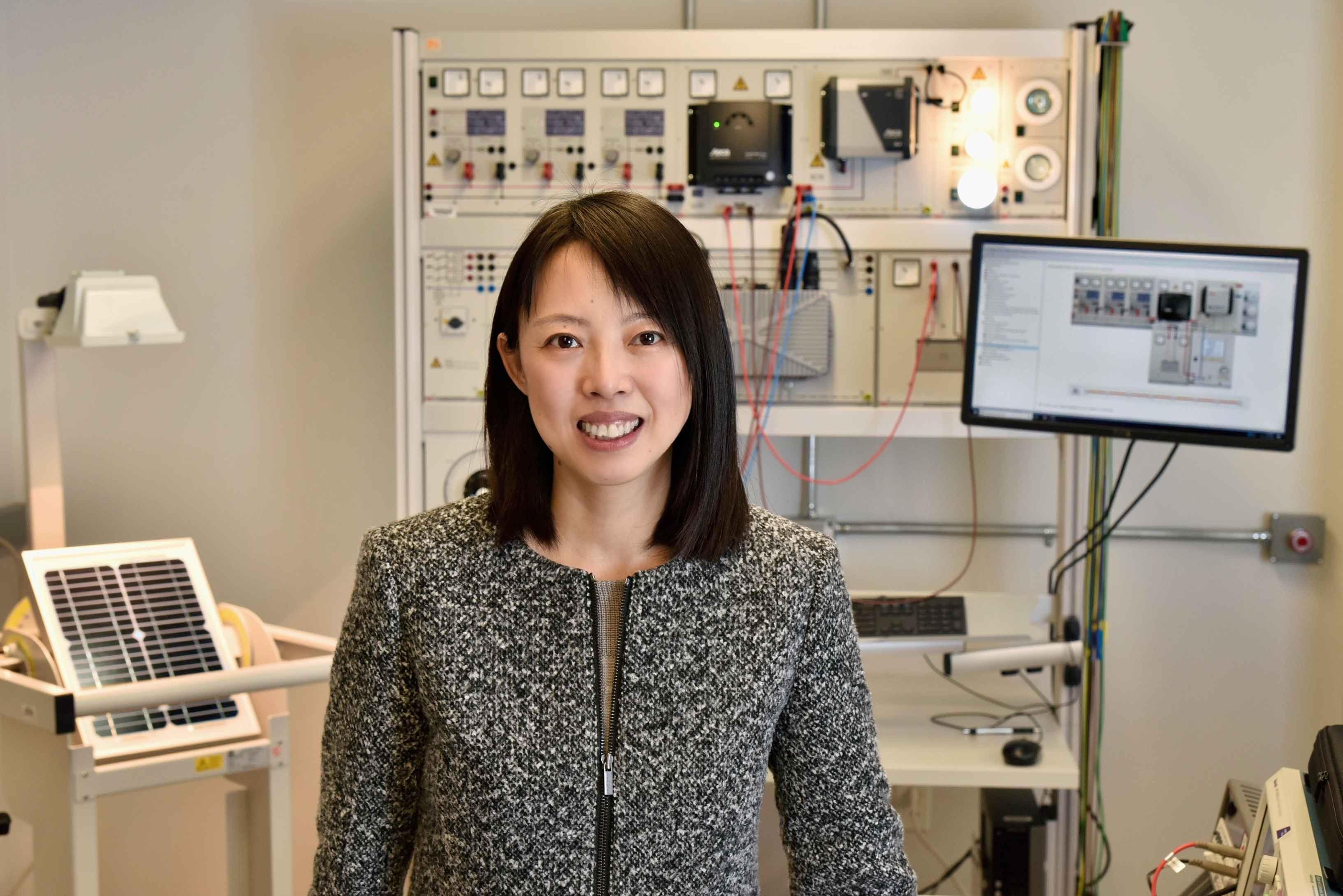Electrical and computer engineering faculty member Hui Zhang recently earned a two-year, $187,599 grant from the National Science Foundation to support discovering a more efficient way to charge electric vehicles.
A two-year, $187,599 grant from the National Science Foundation will fund SUNY Oswego faculty research in the pursuit of discovering a more efficient and less expensive inverter technology to facilitate the adoption of high-voltage DC-links in electric vehicles, which will help reduce the charging time of electric vehicles.
Electrical and computer engineering (ECE) faculty member Hui Zhang is always looking to bring funding opportunities to SUNY Oswego. Zhang has brought several grants to the campus. These grants have not only helped Zhang to expand her research capability and establish research collaborations but also have provided exceptional research opportunities to Oswego students by involving them in Zhang’s research.
“Real-world experience is a crucial part of engineering education,” Zhang said. “Getting involved in research is a great way for students to learn hands-on skills and develop problem-solving abilities. I always encourage students to participate in my research.”
Why electric vehicles
According to Zhang’s research funding proposal, “besides reducing fossil fuel consumption and environmental benefits, electric vehicles offer numerous other benefits such as increasing fuel diversity, providing opportunities to integrate more renewable energy into the grid and offering individual benefits including better driving experience and less expensive and frequent maintenance.”
“The number one reason we switch to electric vehicles is the environmental benefit,” Zhang said. “It will also help us diversify our energy source so we rely less on fossil fuels.”
Yet, even though electric vehicles could be widely adopted, barriers remain to widespread use. Zhang notes that cost is one of the top barriers to both producing and purchasing electric vehicles. Charging –- the problem she wishes to solve with this research –- is the other significant barrier to electric vehicles adoption.
“It takes a long time to charge –- a lot longer than a conventional vehicle,” Zhang said. “Do you want to stop for an hour to charge your vehicle? This technology that we are researching can help to reduce that charging time.”
Traction inverter research enabling the use of high voltage in DC link
Zhang will research traction inverter technology and the application of wide bandgap
devices as a way to increase the DC link voltage of the electrical system in an electric
vehicle.
“Besides the significant reduction of charging time of electric vehicles, the new inverter
design with a high voltage DC-link can increase the power density of the electrical
system which would mean smaller components and less weight, as well as less part
count and in turn less cost,” Zhang said. “Moreover, the application of wide bandgap
devices can further improve the efficiency and reduce the heat in the electrical system.”
Oswego students will be involved in the research through project-based courses and
summer internships with Zhang.
Through the grant, Zhang will also extend the learning opportunity to K-12 students in
local schools by providing science and technology camps and workshops.
“We want to expose the children in our local community to science and technology,
especially in the area of power and energy, and inspire them to pursue STEM education
and careers,” Zhang said. “On the other hand, we also want to promote our Electrical
and Computer Engineering program through these activities and increase student
enrollment.”




